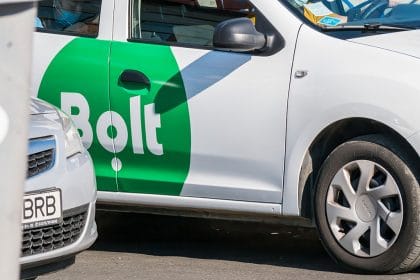In order to remain competitive in the market, Bolt has also identified the food industry as a lucrative segment.
Ride-hailing startup Bolt has announced that it has completed funding led by D1 Capital Partners and managed to raise £150 million ($182 million). The Estonia-based Bolt intends to channel the money to its platform and bolster its safety via facial recognition and AI capabilities.
In addition, the company anticipates using the money to expand its ride-hailing to different markets, electric bike and scooter rental and food delivery services.
Having experienced a rather not profitable year as expected, the company expects things to be different come 2021. “In 2021, we are doubling down to be the industry leader in safety and quality of the platform,” Markus Villig, Bolt’s CEO, said in a statement. He added:
“We’re planning to launch even more innovative solutions, like driver face verification and automatic trip monitoring, using machine learning to prevent potential incidents and ensure the highest quality service for our customers.”
Bolt to Compete in Ride-Hailing Industry with AI Initiatives
Bolt was previously rebranded from Taxify and now faces fierce competition from American ride-hailing giant Uber Technologies Inc (NYSE: UBER). The ride-hailing industry has been significantly affected by the coronavirus pandemic as people stay at their homes to avoid contracting the virus.
With different jurisdictions that Bolt operates having experienced lockdown, the demand for its services experienced a sharp decline. However, with different coronavirus vaccines on the way and some already approved in some jurisdictions, Bolt is optimistic its services will rebound by 2021 and beyond.
Villig said that the company has continued to grow despite the effects of the ongoing coronavirus pandemic. “We have almost doubled our number of customers and launched our services from ride-hailing to micromobility and food delivery in 50 new cities,” said Villig.
Bolt however declined to disclose its market valuation but media outlet TechCrunch reported that the startup may be valued at approximately $4.3 billion. Previously, Bolt had a market capitalization of $1.9 billion back in May 2020.
In order to remain competitive in the market, Bolt has identified the food industry as a lucrative segment. “Currently we are adding restaurants by the day. There are cost synergies on a lot of fronts, including the supply side, where drivers can serve passengers and food,” said Villig.
Having included the bike section, Bolt can now be in a position to not only deliver on time but also onboard more drivers.
This is a huge welcome to most global economies that are struggling due to job losses fueled by the ongoing coronavirus pandemic. Interestingly, Bilt noted that it has not laid off any of its workers despite other companies doing so to save their businesses.
next